The boss of M&E consultant FHP believes opportunities for women are, finally, looking up – just don’t make them wear a pink hard hat
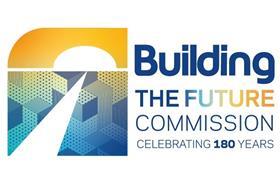
Just imagine how this would feel if it happened to you: You have gone on maternity leave and you come back after seven and a bit months away. But, when you get back, you find you don’t have a desk and no one has bothered to tell the rest of your team that you have returned.
Extraordinarily, that is what happened to Gauri Talathi-Lamb. She is the chief executive of M&E consultant FHP, a £7m turnover business with six offices and nearly 80 staff stretching from Glasgow down to London. Its clients include the government, as well as real estate firm JLL and US multinational Johnson & Johnson.
Talathi-Lamb is recalling the story, which occurred at a previous employer, in part to say how much of an impact it had on her – and what not to do now she’s a boss.
“One of our team members has just gone on maternity leave and I’ve made a point to say to her that we’re waiting for you. Whatever you decide, you just need to know you’re coming back and you’ll be welcome.”
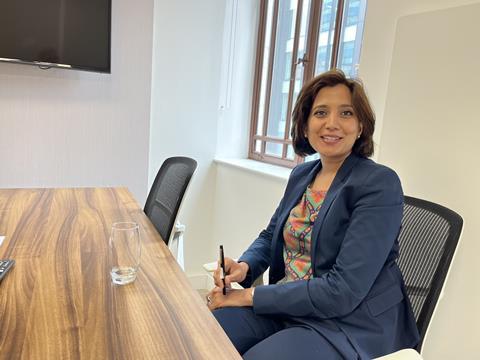
Another landmark moment for her, again at a previous firm, was this: “I was in a meeting and people said, ‘This person is young, she’s just married, maybe she’s going to have a child, let’s not promote them’.
“Would you ever do that to a man? I was young and naïve and didn’t speak up [but] it has stayed with me since. That was a deciding time in my life. After that, I’ve never stopped myself from speaking my mind.”
Would you ask a man if he is able to do his job properly?
There is more: “I was asked, coming back from maternity leave, ‘Are you sure you want to do this job, which is going to take up a lot of time? It’s a very demanding job, you’re a new mum’. That was all said. Would you ask a man if he is able to do his job properly?”
Born in India, 39 years ago Talathi-Lamb came to the UK when she was 21. “I knew no one, had no family here.”
Since then, she has got married, had a son, worked for household names such as Hugo Boss and White Stuff and, in 2019, became boss of FHP after she and husband James bought the firm through the private equity firm they own called Iolas Capital.
That was four months before covid struck and the country was put into lockdown. But the company, whose roots stretch back to the 1970s, survived and an income then of around £5m is projected to be double that by 2026.
For someone whose career on the face of it has been in retail, Talathi-Lamb’s background is mechanical engineering, having graduated from the Victoria Jubilee Technical Institute, which has since changed its name, in Mumbai.
After graduating, she worked at Arvind Mills, the second-largest denim producer in the world, before leaving Gujarat, where it is based, and returning to Mumbai. She left for the UK to do a masters in brand management at Istituto Marangoni, an Italian fashion and design college which has a site in London.
Her first job in London was for a company called Club 21, a fashion retailer which used to manage luxury brands such as Calvin Klein, Armani and Paul Smith. “I helped build their website and do their PR.”
Then it was off to high street retailer White Stuff, where she stayed for seven years before joining Hugo Boss, heading up its northern Europe section for real estate, which included the UK, Scandinavia and the Baltic countries.
Her passion was space planning and how stores were laid out, so she describes herself as working in shop construction. After that it was off to the Belgian chocolatier Godiva before switching to the more earthy world of M&E consulting four years ago.
She and James, who she met at a birthday party, bought FHP from a team behind an MBO of the business and describes her role as operations and construction-led, with her husband “more of a silent partner, focusing on the finance”.
So many times I’ve turned up on site and they say, ‘We expected a man’. I’m a big surprise! Deal with it. What can you say?
She struggles to name too many peers who are women, let alone women of colour and admits: “So many times I’ve turned up on site and they say, ‘We expected a man’. I’m a big surprise! Deal with it. What can you say?”
She thinks that women are more prone to losing confidence than men. “Self-doubt is a thing for women, I think. If you have a list of 10 things in a job advert, for example, a woman will only apply if she hits eight or nine of them. A man will say, ‘I’ve kind of got five, I think that should be good enough to apply and see what happens’.
“You come back from maternity, self-doubt takes over. Will I remember my job properly? I took seven-and-a-half months off.”
How, then, to make things better for women in this industry? “It still has a greasy hands image. I started going to and speaking at schools, told [the children], ‘Trust me, the image you’ve got doesn’t align with what we’re doing in the industry’. You have to break it down for their understanding.”
Diversity is not just about colour or gender. It’s about different personalities as well and we all bring a personality to the workplace
She thinks simple things will also help. “If four or five men are having a conversation about football, it becomes very difficult to join in that conversation. I don’t like football,” adding: “I’m not even a follower of cricket.”
She says: “One of the things we do [at FHP] is to tell the team leaders to find a topic where other people are welcome, to give an opinion and the more the leaders do it the more the team will feel involved. Diversity is not just about colour or gender. It’s about different personalities as well and we all bring a personality to the workplace.
“If others can join in a conversation – and I’m not just talking about women – you start understanding each other a lot more. If it’s a closed network, it’s very difficult to break in and you feel like an outsider.”
The war on talent should mean more opportunities for women, Talathi-Lamb says. “The shortage in engineers has led people to become more open and receptive. People are looking at CVs for experience and not a person.”
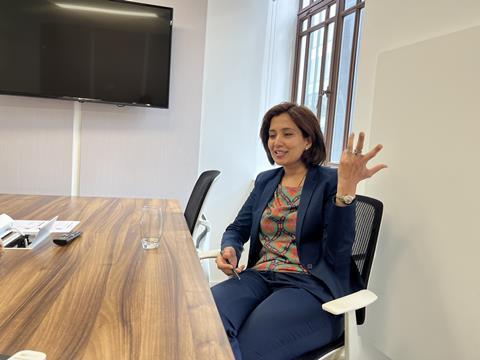
Talathi-Lamb is part of the Mentoring Circle initiative which provides a year-long development programme for junior female professionals in the real estate industry. Its aim is to improve female talent retention and increase the number of women in senior leadership positions.
The programme “involves a dedicated one-to-one mentoring partnership with a senior female leader, regular guest speaking events, networking opportunities and a bespoke two day leadership development programme”.
More of this is needed, she reckons. “Women supporting each other and networking on a professional level – that has changed from when I started.
Bringing women on to a board means it will have a different view from a static male leadership board
“Access to leadership has changed. Things like LinkedIn give you the chance to reach out to each other and, don’t forget, a lot of the students have access to LinkedIn.”
As for getting more female leadership on to boards, it’s not about box ticking. “Bringing women on to a board means it will have a different view from a static male leadership board. You will get a different perspective and it’s important for the team – they will see it.”
Things, then, are improving and certainly have come on from a well-meaning but baffling attempt from team members, at a previous employer, to give her a boost the next time she walked onto a site. “I was given a pink hard hat and boots,” she says.
“I think it was like ‘girl power’ on site. I said, ‘If I walk with this on site, my career is over’. I think [the team] thought it was a positive thing but I was like, ‘Guys, no. They will laugh at me for the rest of my life’.”
Needless to say, the pink hard hat and boots never saw the light of day.
Join us for the Building the Future Commission Conference on 27 September - buy your tickets here
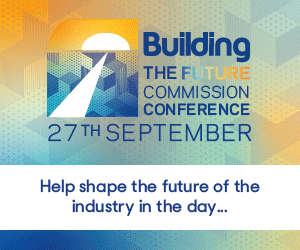
Join the Building the Future Commission Conference in Westminster on 27 September to hear from leading figures across the construction industry and find out more about the work of the commission.
The day will include panel debates on net zero, digital transformation and building safety as well as talks from high-profile keynote speakers on future trends and ideas that could transform the sector.
There will also be the chance to feed in your ideas to the commission and to network with other industry professionals keen to share knowledge.
On the day, we will also be announcing the winner of our Future Thinkers’ Award, which will go to the most innovative idea submitted in our competition for professionals under 35-year-olds wanting to improve the built environment. The deadline for entries is Friday 18 August, and you can submit your entries by emailing buildingfuturecommission@building.co.uk
About the commission
The Building the Future Commission is a 12-month project looking at radical and challenging ideas that could help transform the built environment.
The campaign aims to tap into innovative ideas, amplify them and be an agent for change.
The major project’s work will be guided by a panel of major figures who have signed up to help shape the commission’s work culminating in a report published at the end of the year.
The commissioners include figures from the world of contracting, housing development, architecture, policy-making, skills, design, place-making, infrastructure, consultancy and legal. See the full list here.
The project is looking at proposals for change in eight areas:
- Education and skills
- Housing and planning
- Energy and net zero
- Infrastructure
- Building safety
- Project delivery and digital
- Workplace culture and leadership
- Creating communities
>> Editor’s view: And now for something completely positive - our Building the Future Commission
>> Click here for more about the project and the commissioners
Building the Future is also undertaking a countrywide tour of roundtable discussions with experts around the regions as part of a consultation programme in partnership with the regional arms of industry body Constructing Excellence. There is also a young person’s advisory panel.
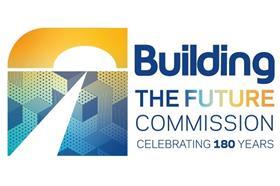



























No comments yet